Cleaning Procedure
- Clean the following components in solvent:
| • | Connecting rod bearings |
| • | Crankshaft oil passages |
| • | Crankshaft threaded holes |
Caution: Refer to Safety Glasses Caution in the Preface section.
- Dry the following components with compressed air:
| • | Connecting rod bearings |
| • | Crankshaft oil passages |
| • | Crankshaft threaded holes |
Visual Inspection
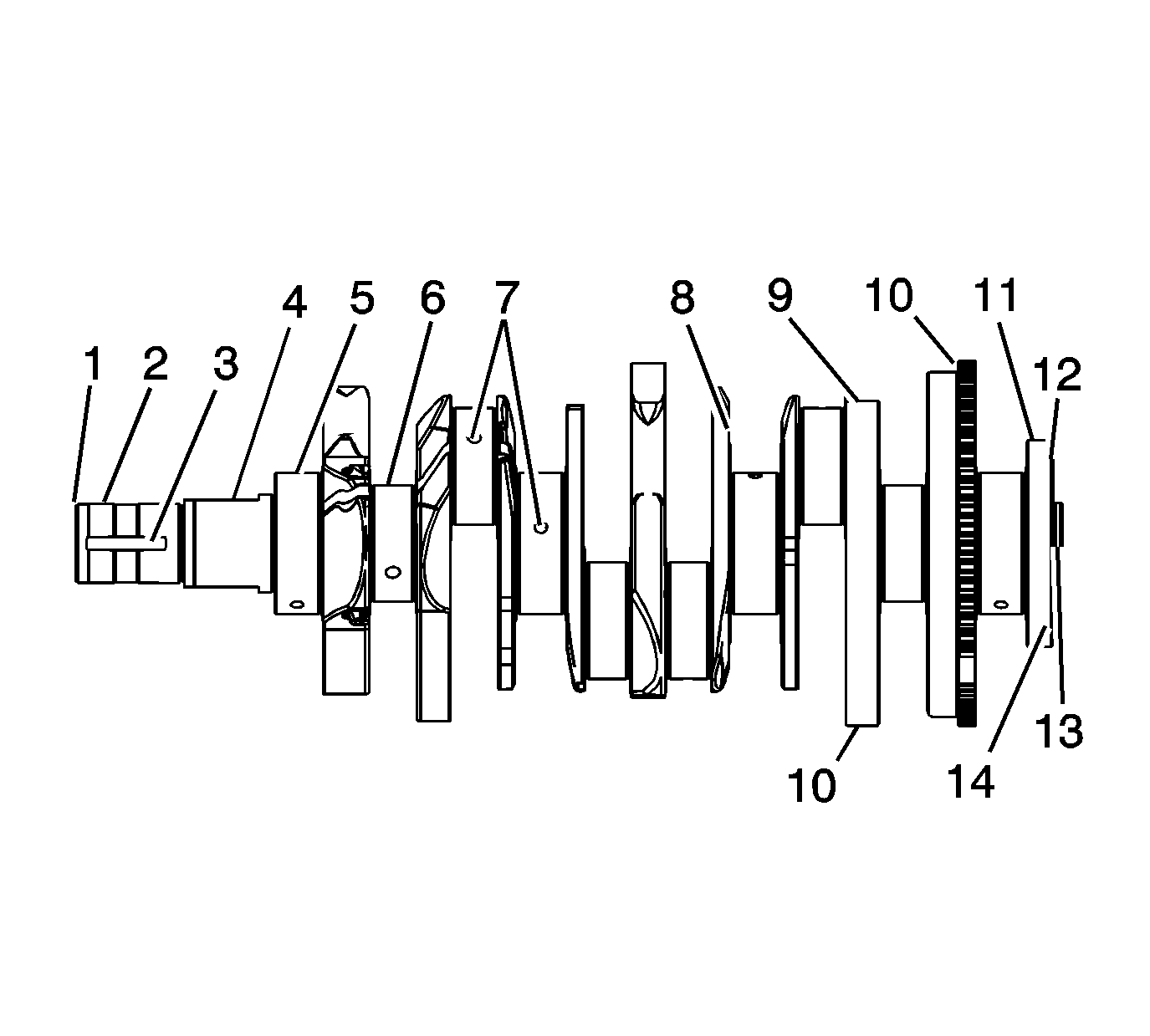
- Perform the following visual inspections:
| • | Inspect the crankshaft balancer bolt hole (1) for thread damage. |
| • | Inspect the crankshaft balancer mounting area (2) for damage. |
| • | Inspect the crankshaft keyway (3) for damage. |
| • | Inspect the oil pump drive flats (4) for damage. |
| • | Inspect the crankshaft main journals (5) for damage. |
| • | Inspect the crankshaft connecting rod journals (6) for damage. |
| • | Inspect the crankshaft oil passages (7) for obstructions. |
| • | Inspect the crankshaft main bearing thrust wall surfaces (8) for damage. |
| • | Inspect the crankshaft counterweights (9) for damage. |
| • | Inspect the crankshaft reluctor ring teeth (10) for damage. |
| • | Inspect the crankshaft rear main oil seal surface (11) for damage. |
| • | Inspect the crankshaft engine flywheel mounting surface (12) for damage. |
| • | Inspect the crankshaft pilot hole (13) for damage. |
| • | Inspect the crankshaft engine flywheel bolt holes (14) for thread damage. |
- Repair or replace the crankshaft as necessary.
Crankshaft Bearing Inspection
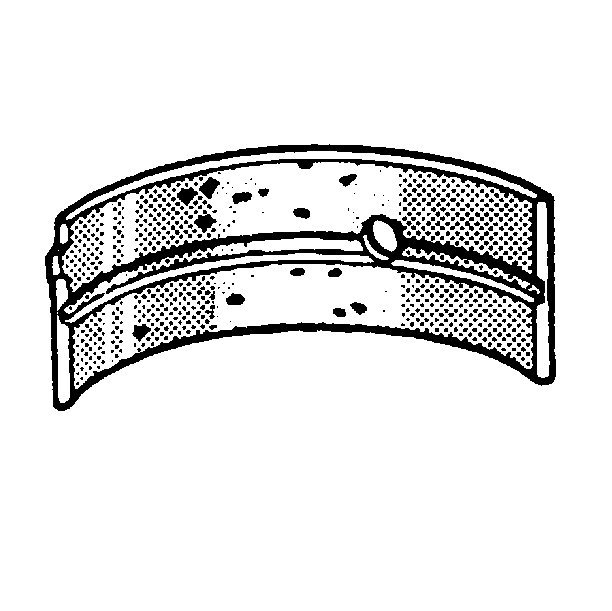
Important:
| • | All connecting rod and main journal bearings that have been used in a running engine must be replaced. Never re-use the crankshaft or connecting rod bearings. |
| • | The following bearing wear conditions should be used to diagnose engine operating conditions or root cause of a condition. |
- Inspect for fatigue indicated by craters or pockets. Flattened sections on the bearing halves also indicate fatigue.
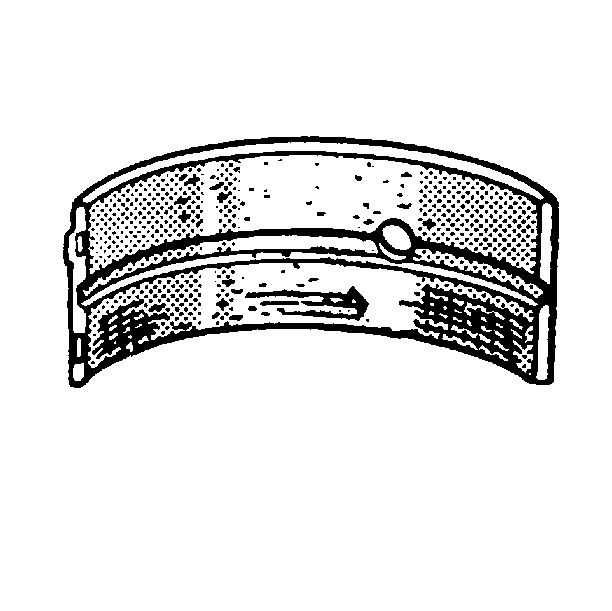
- Inspect for excessive scoring or discoloration on both front and back of the bearing halves.
- Inspect the main bearings for dirt embedded into the bearing material.
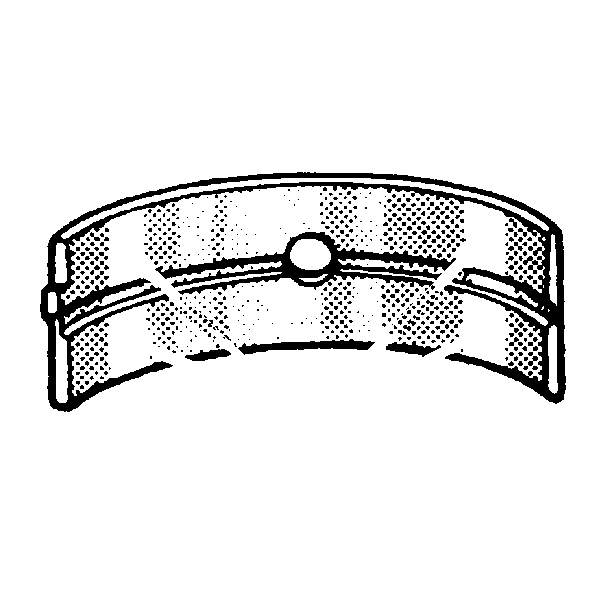
- Inspect for improper seating indicated by bright, polished sections.
Crankshaft Measurement
Tools Required
J 7872 Magnetic Base Dial Indicator
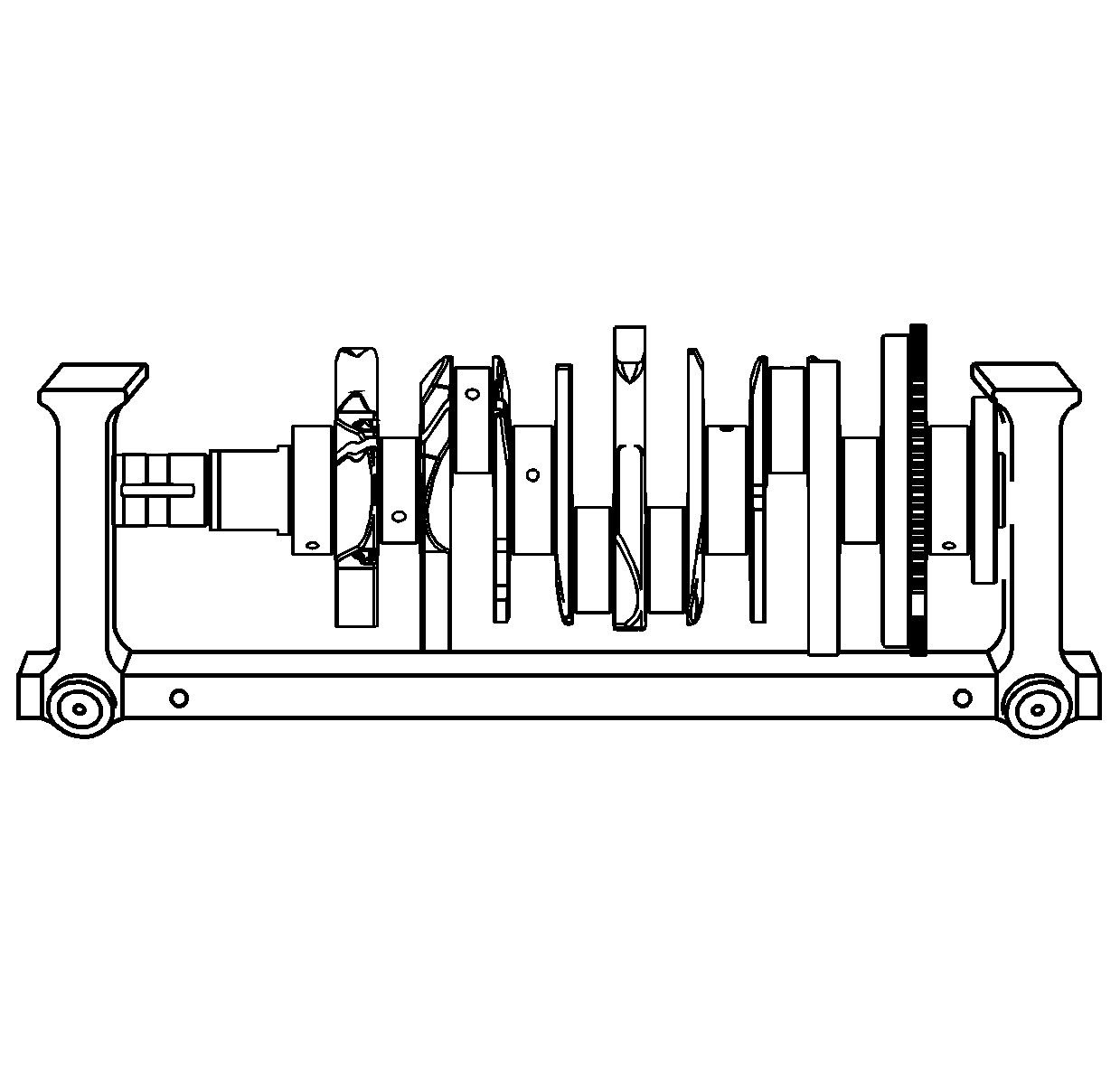
- Using a suitable fixture, support the crankshaft.
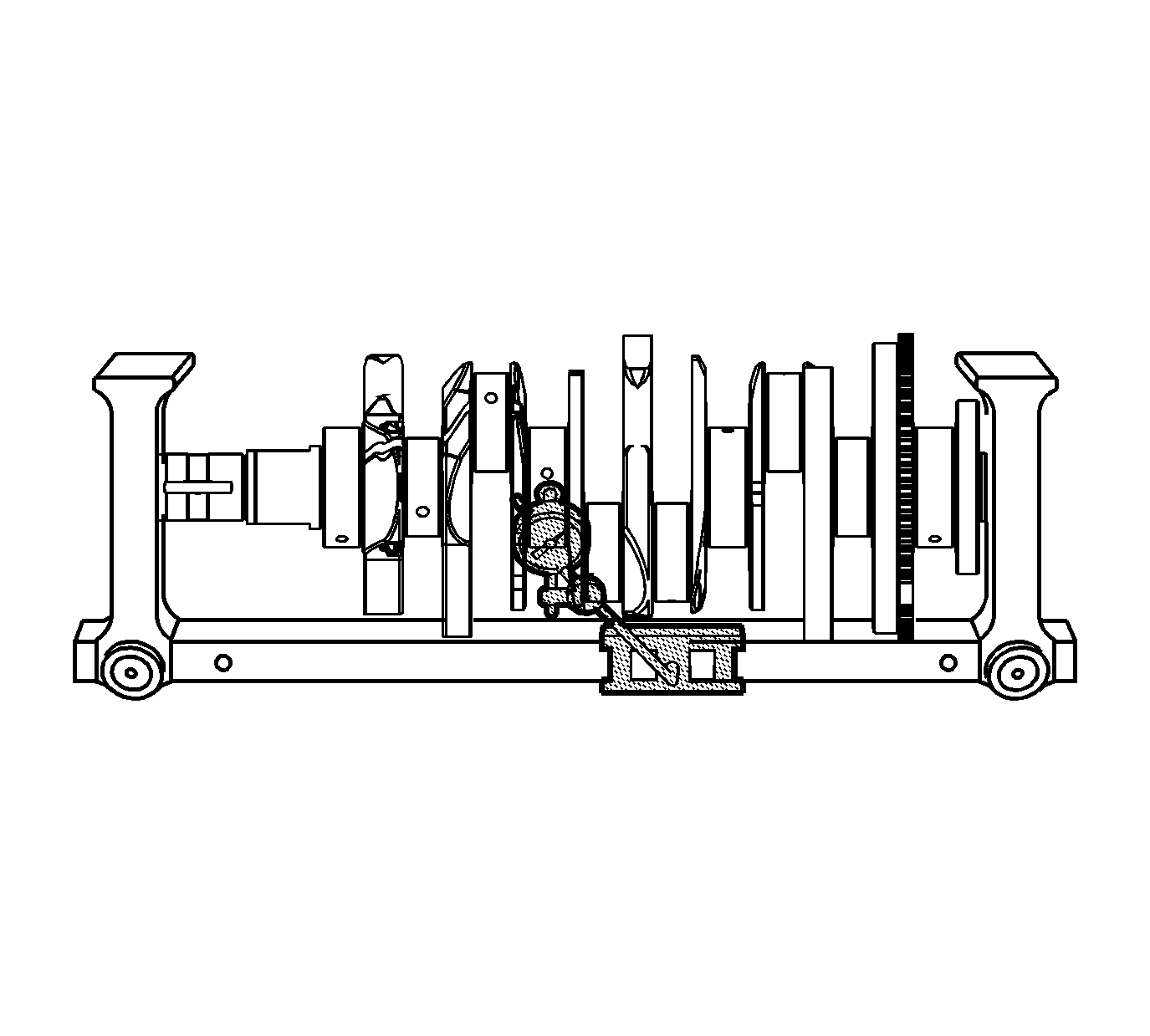
- Install the
J 7872 .
- Measure the crankshaft runout using the
J 7872 . Refer to
Engine Mechanical Specifications .
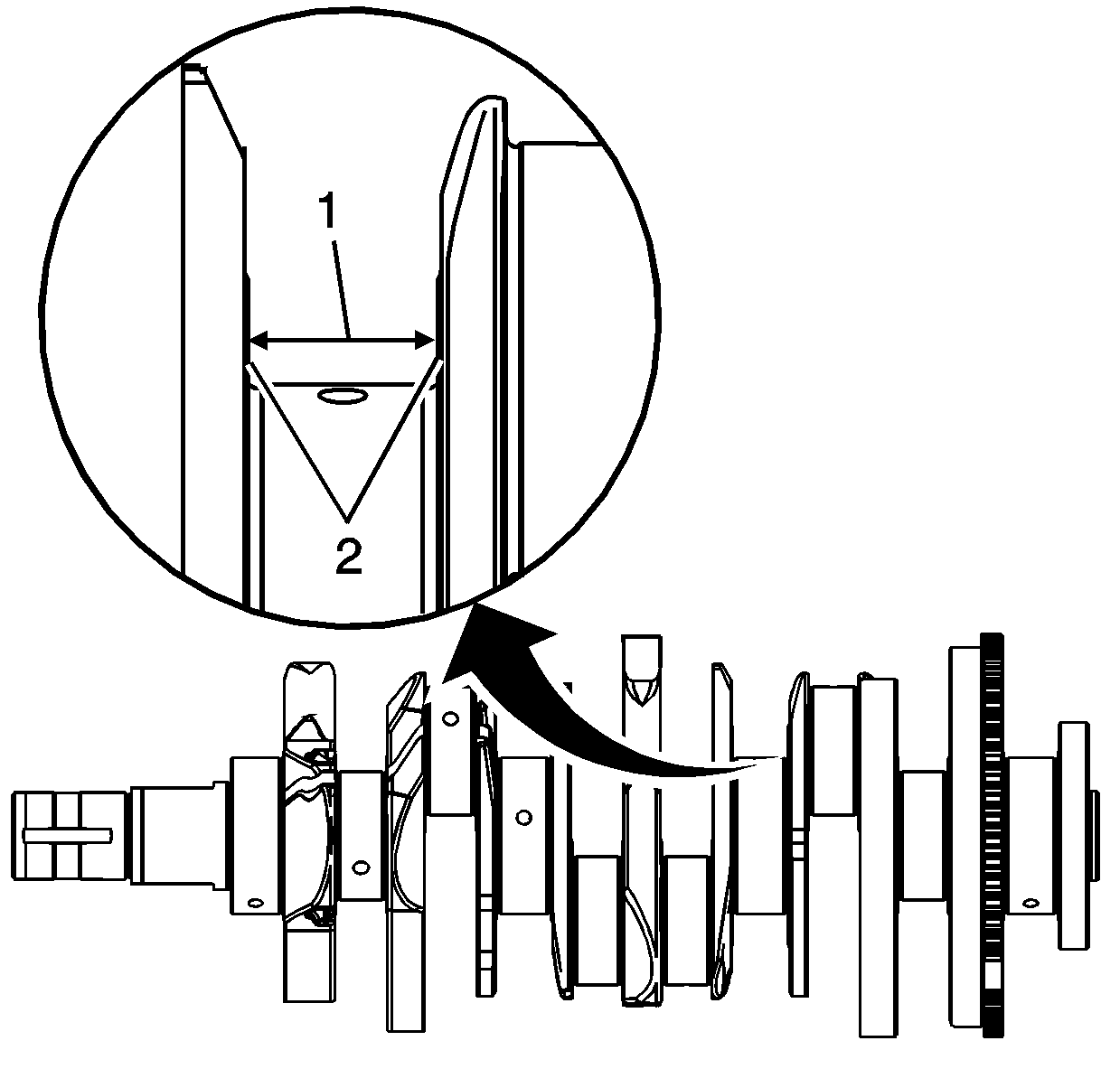
- Measure the crankshaft thrust wall width (1) for wear using an inside micrometer. Refer to
Engine Mechanical Specifications .
- Measure the crankshaft thrust wall surface (2) for runout using the
J 7872 . Refer to
Engine Mechanical Specifications .
- If the crankshaft journals are damaged or worn beyond specifications, the crankshaft may be ground 0.25 mm (0.010 in). There is only 1 size of oversized main bearings available for service.
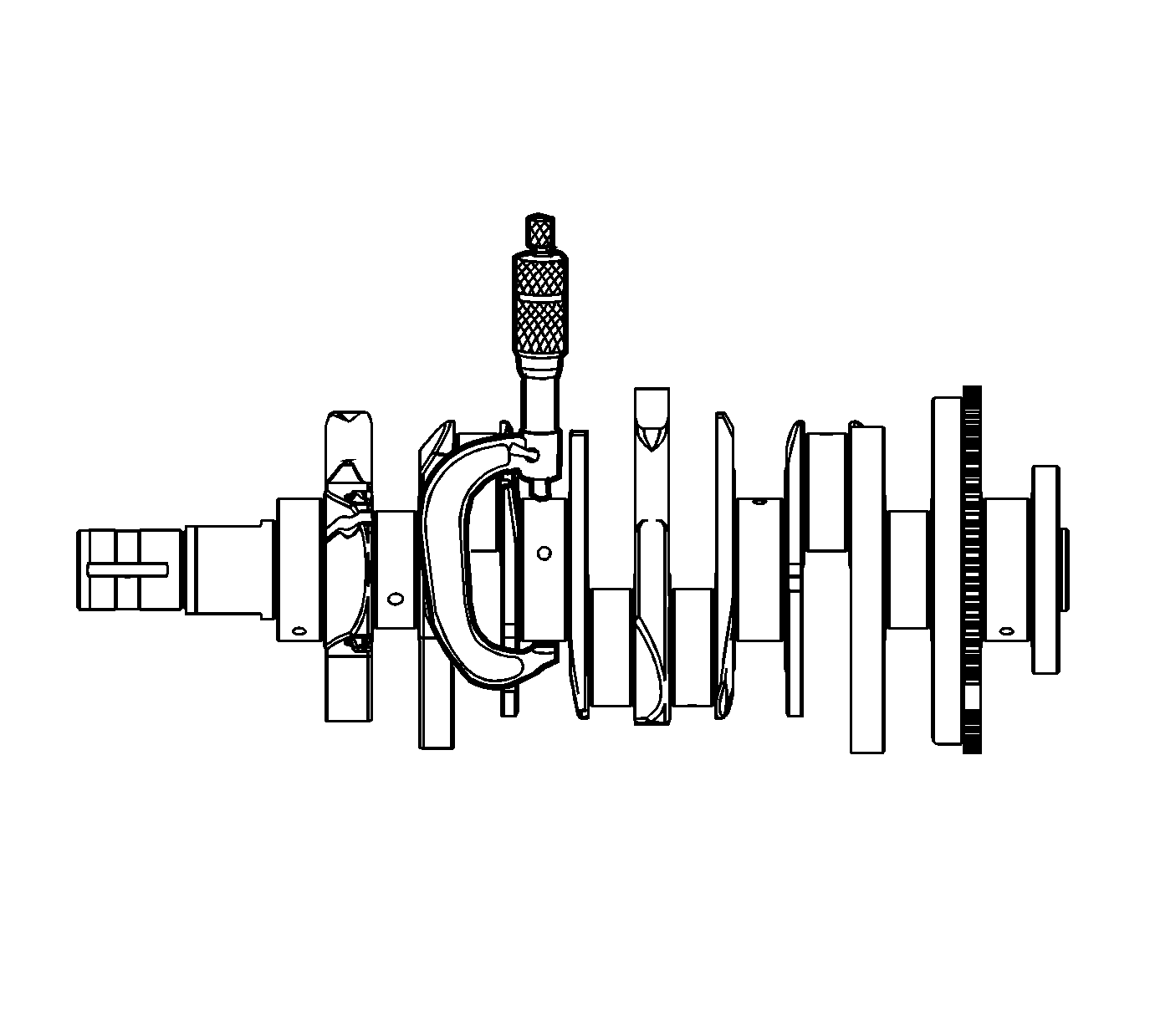
- Inspect the crankshaft main journals for undersize, using an outside micrometer.
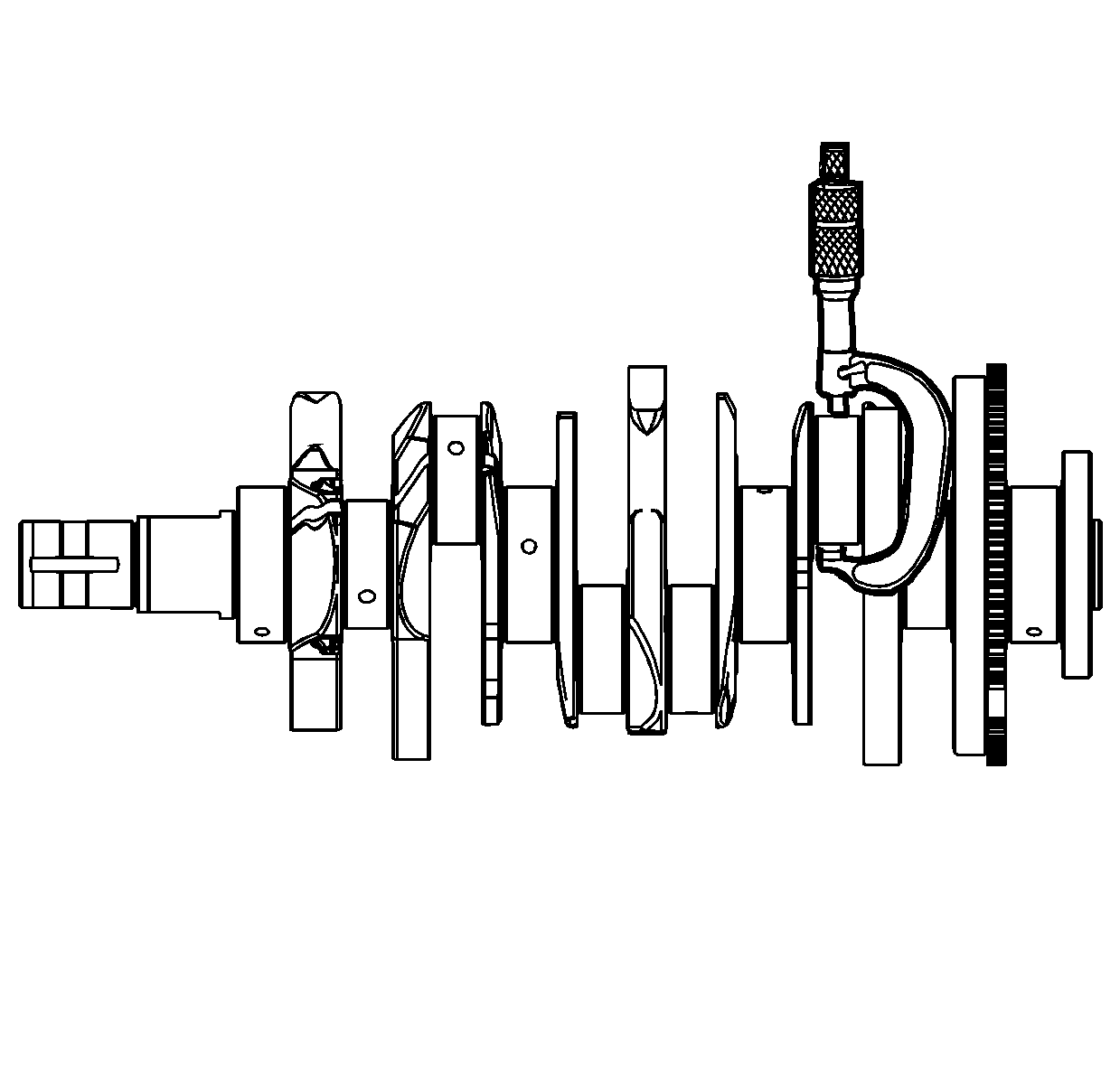
- Inspect the crankpins for undersize using an outside micrometer.
- Compare your measurements with those listed in the
Engine Mechanical Specifications . If the crankpin journals are worn beyond the specifications, the crankshaft may be ground 0.25 mm (0.010 in). There is only 1 size of oversized
connecting rod bearings available for service.
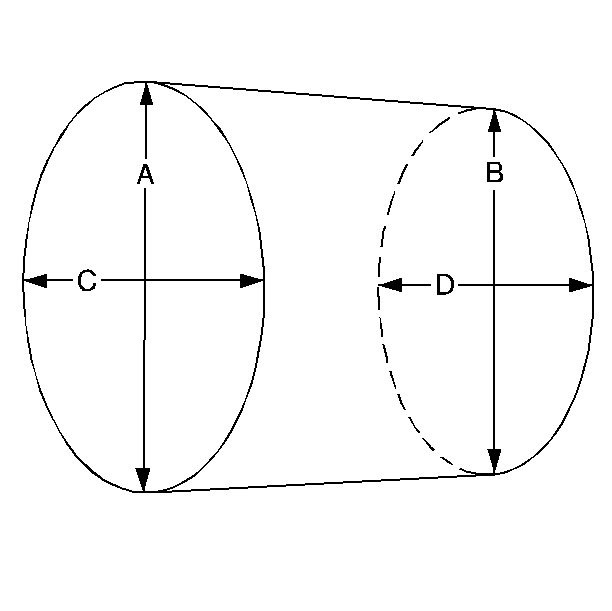
- Measure the main bearing and crankpin journals for out-of-round using the following procedure:
| 10.1. | Using an outside micrometer, measure the journal at the extreme front and rear locations on the journal. Call these points A and B. |
| 10.2. | Measure the journal in 2 new locations exactly 90 degrees from the first points. Call these points C and D. |
| 10.3. | Subtract A from C and B from D. The differences will indicate journal out-of-round. |
| 10.4. | The out-of-round should not exceed 0.004 mm (0.00016 in) maximum. |
| 10.5. | If the journals are worn beyond the specifications, the crankshaft may be ground 0.25 mm (0.010 in). There is only 1 size of oversized crankshaft and connecting rod bearings available for service. |
- Measure the main bearing and crankpin journals for taper using the following procedure:
| 11.1. | Using an outside micrometer, measure the journal at the extreme front (A) and rear (B) of the journal parallel to the crankshaft centerline. |
| 11.2. | Subtract the smallest from the largest measurement. The result will be the journal taper. |
| 11.3. | If the main bearing journal taper exceeds 0.004 mm (0.00016 in), replace the crankshaft. |
| 11.4. | If the journals are worn beyond the specifications, the crankshaft may be ground 0.25 mm (0.010 in). There is only 1 size of oversized crankshaft and connecting rod bearings available for service. |










